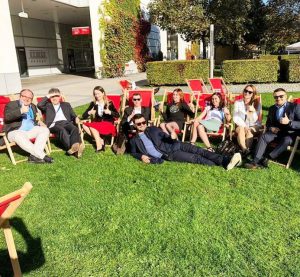Russian “Haynets” are adapting to new orders: the results of a joint survey of Tranio and Adam Smith Conferences
 For the first time in history, more than 50% of wealthy Russians began to notify Russian tax authorities of their accounts in foreign banks and controlled foreign companies. This assessment was given by survey participants conducted by Tranio in conjunction with Adam Smith Conferences in 2018. For the third year in a row, the survey is conducted among private banking specialists, lawyers and tax consultants working with owners of large capitals.
For the first time in history, more than 50% of wealthy Russians began to notify Russian tax authorities of their accounts in foreign banks and controlled foreign companies. This assessment was given by survey participants conducted by Tranio in conjunction with Adam Smith Conferences in 2018. For the third year in a row, the survey is conducted among private banking specialists, lawyers and tax consultants working with owners of large capitals.
58% of “Highway” notify the tax authorities of accounts in foreign banks
In 2017, according to the average respondents’ estimate, about 42% of wealthy Russians informed tax officials about their foreign accounts, as required by the federal law “On Currency Regulation and Currency Control”. And in 2018, the proportion of notifiers reached 58%.
The proportion of wealthy Russians who have accounts in foreign banks notifies the Russian tax authorities
“The percentage of notifiers has grown primarily because from 2018 Russia really began to exchange tax information with other countries in the framework of CRS and CbC,” explains Georgy Kachmazov, Tranio managing partner. “There are many technical and organizational overlays in this exchange, and more a few years before the procedure reaches maturity. But the ice has broken: the first exchange has already passed, and account holders understand that it will only be more difficult to hide assets from the state. ”
For the first time in history, more than 50% of wealthy Russians began to notify Russian tax authorities of their accounts in foreign banks and controlled foreign companies.
According to the survey, among Russians with a fortune of $ 1 to $ 30 million, the share of notifiers is particularly high: it reaches 65%. “Those who have less than a million, are interested in tax in the last place,” comments Georgy Kachmazov, “so they can afford not to glow at all, relying on the fact that the tax authorities do not have enough resources to recheck everyone at once. And those who have more than 30 million, will change their residency, rather than open their accounts to our tax authorities. ” The second thesis is consistent with the results of the 2017 survey: the richer the Russians, the more they tend to become tax residents of other countries.
“Ultra-haynets have financial and technical opportunities to become a resident of another country,” Georgy Kachmazov continues. “The middle peasants remain who usually cannot just leave Russia for six months or more: they have an operating business that requires control over place Therefore, they are accustomed to the idea that a new reality has arrived, so it is better to put your accounts in order and declare according to the law. ”
57% of wealthy Russians declare their CFC
The situation is similar with the owners of controlled foreign companies: according to the survey results, in 2018 about 57% of them declared their CIC in accordance with the requirements of the Tax Code, while in 2017 this share was only 45%.
The proportion of wealthy Russians who have controlled foreign companies notifies the Russian tax authorities about them
Some respondents noted that wealthy Russians predominantly declare their new, freshly opened bank accounts and companies, and the old ones close, not advertising them to the Russian tax authorities. “This is a very common practice,” confirms Georgy Kachmazov. “Clients polls off all money from old accounts, close accounts, transfer money to Russia. And then they open a new account abroad – for example, in a completely different bank – and legally transfer funds to it, submitting all the necessary declarations. Thus, the transaction history is reset, but about the old assets the tax does not know anything. ”
Wealthy Russians massively close former foreign accounts and the CIC and open new ones (with a clear transaction history), which are reported to the tax authorities.
The program of tax-free liquidation of foreign companies was in demand
Previous polls have shown that in the new conditions, wealthy Russians primarily seek to change their tax residency. This answer prevailed with a large margin from the rest, gaining 48% of the votes of the respondents in 2016, and 78% in 2017. Therefore, in a survey in 2018, we focused on the behavior of the “hight”, who for some reason remain Russian tax residents. According to respondents, in this case, the owners of capital primarily operate in two directions: they take part in the non-tax liquidation of foreign companies (73% of respondents) and submit declarations within the amnesty of capital (71%).
What actions for the legalization of foreign assets are taken by wealthy Russians in 2018
The richer the “Haynets,” the more they are inclined to participate in the tax-free liquidation of foreign companies and structures, the benefit of which in February 2018 was extended until March 1, 2019. In the HNWI segment (personal status of $ 1–5 million), 63% of respondents, but in the UHNWI segment (more than 30 million dollars) – 88%.



